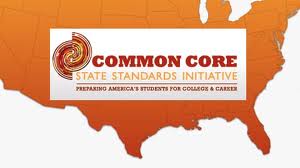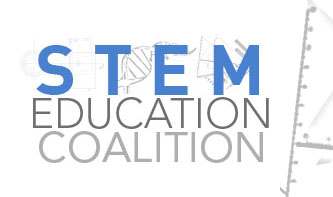Finding Opportunity in New State Education Standards
As schools across the country adopt initiatives to better prepare children for the future, booksellers are facing new challenges as well as opportunities to work more closely with teachers and school librarians.
 One such initiative is the Common Core State Standards, which were introduced in 2010, as a way to align diverse state curricula, and to prepare children for college and the workforce. The standards were established by the National Governors Association Center for Best Practices and the Council of Chief State School Officers in collaboration with school officials.
One such initiative is the Common Core State Standards, which were introduced in 2010, as a way to align diverse state curricula, and to prepare children for college and the workforce. The standards were established by the National Governors Association Center for Best Practices and the Council of Chief State School Officers in collaboration with school officials.
Over the last two years, 45 states have formally adopted Common Core Standards in Mathematics and English Language Arts. Components of the latter include a wide range of literature, as well as informative texts.
 Another initiative is the STEM (Science, Technology, Engineering, and Mathematics Education) Coalition, which works to raise awareness about the critical role that STEM education plays in enabling the U.S. to maintain an economic and technological leadership position. The coalition advocates for strengthening of STEM-related programs for educators and students and increased federal investments in STEM education.
Another initiative is the STEM (Science, Technology, Engineering, and Mathematics Education) Coalition, which works to raise awareness about the critical role that STEM education plays in enabling the U.S. to maintain an economic and technological leadership position. The coalition advocates for strengthening of STEM-related programs for educators and students and increased federal investments in STEM education.
Both initiatives have created a demand for more quality nonfiction for children and young adults — a need that some publishers have begun to address. (A recent Publishers Weekly feature looked at some of their efforts.)
The Common Core initiative does not provide reading lists but rather samples of the type of texts that students are expected to be able to read and comprehend. As a result, booksellers and school librarians are increasingly being called on to recommend titles belonging to genres not typically covered in English classes.
“The question of whether or not a specific title meets the standards remains fairly subjective,” Kenny Brechner, the owner of Devaney Doak & Garrett Booksellers (DDG Books) in Farmington, Maine, told BTW. DDG has been receiving “SOS calls” from school librarians who need to buy a substantial amount of nonfiction to meet the district’s interpretation of the new standards, he said.
DDG is working with the librarians to put together a list of titles that will not only meet the CORE requirements, but that will also hold appeal to children of various ages. Though kids often have a preference for fiction over specialized texts, Brechner and his community’s librarians are committed to providing students with nonfiction that will be both read and valued.
Indie booksellers need to remain involved, Brechner stressed, so schools will continue look to bookstores for assistance and service, instead of ordering directly from publishers. On that same note, he expressed the hope that publishers will make an effort to keep booksellers in the loop by compiling lists of titles that meet the standards and by ensuring that trade reps have them on hand.
There’s a real need for easy-to-obtain, quality titles, said Brechner, “and if publishers do a good job on those lists, they’re going to get orders from us.”
Like Brechner, Becky Anderson, the co-owner of Anderson’s Bookshops in Naperville, Illinois, is very aware of the needs of her community’s classrooms. Anderson views the Common Core and STEM initiatives as an opportunity for publishers to release more quality nonfiction titles for children, and likewise, an opportunity for booksellers to continue to provide these titles to their communities.
“A lot of this is still up in the air,” Anderson observed. “Publishers are still trying to figure out what to do,” but some, like Albert Whitman & Company, which provides a curriculum guide in its catalog, are already providing assistance in this area.
“There are certainly a lot of challenges, but I think we’re going to be seeing a lot more great nonfiction in the coming years,” Anderson said.
The STEM initiative is also a big focus in the Naperville area, so Anderson’s is always looking for new titles in those categories to send to school book fairs.
Anderson’s Bookshop is “upping the ante,” Anderson said, by extending the classroom walls to encompass the bookstore itself and putting a focus on nonfiction titles. The store has awarded authors with mock Sibert Medals. (The real Robert F. Sibert Medal is awarded annually by the American Library Association to the author and illustrator of the most distinguished informational book published during the preceding year.) This is one small way bookstores can draw attention to nonfiction titles, Anderson said.
For booksellers looking to learn more, Anderson suggests using the Common Core website as a resource, and talking to curriculum heads to find out what they’re looking for and how bookstores can remain involved. Booksellers, she said, are well-positioned to discuss the top nonfiction that’s currently available, as well as what’s upcoming, with librarians and teacher groups.
“I hope publishers will help us, and see that we’re here, in the communities, working with schools,” Anderson said. “This is a real opportunity for us to become a bigger connection in the education market.”
Here is a sampling of resources for booksellers looking to learn more:
-
All About Common Core
-
Common Core State Standards for English Language Arts & in History/Social Studies, Science, and Technical Subjects Appendix B: Text Exemplars and Sample Performance Tasks
-
The Cooperative Children’s Book Center of the School of Education at the University of Wisconsin-Madison’s List of Selected Literature for Common Core Standards in English Language Arts (Grades 6-12)
-
The STEM Coalition
-
PBS STEM Education Resource Center for Teachers
- The STEM Book List on First Book